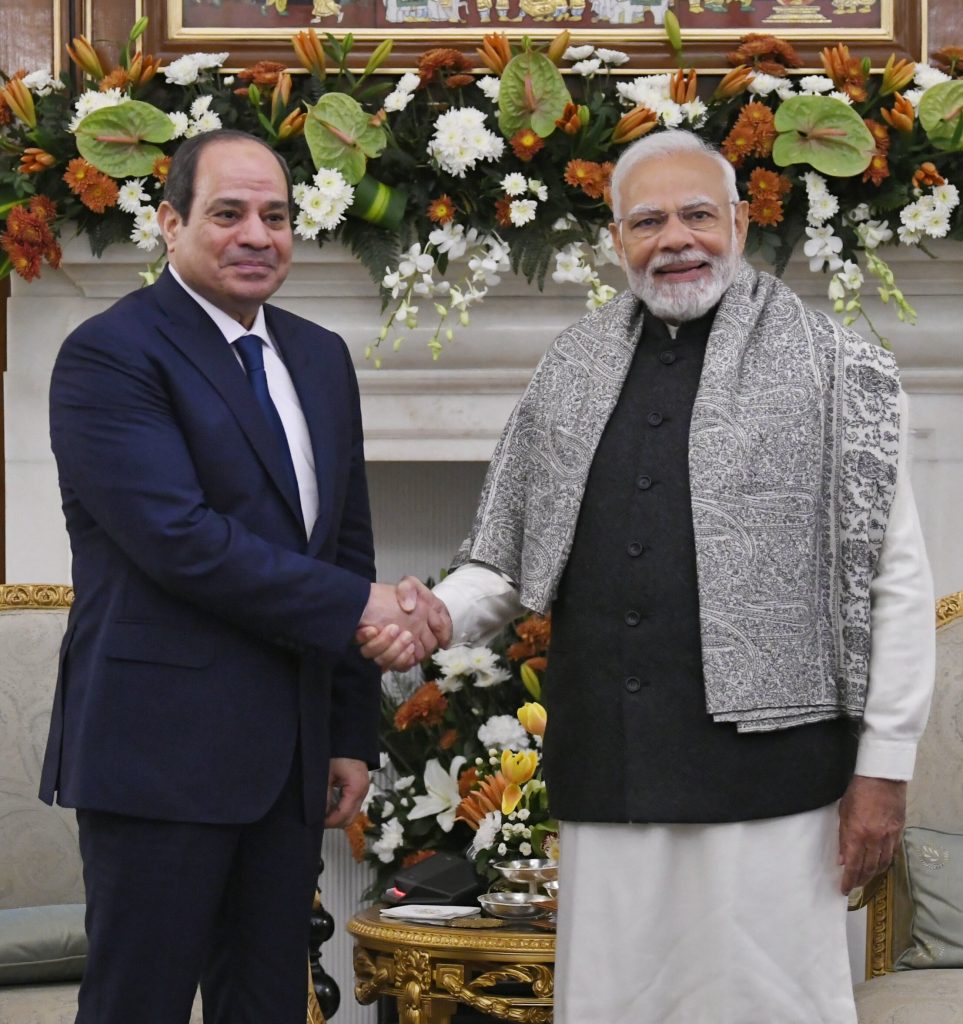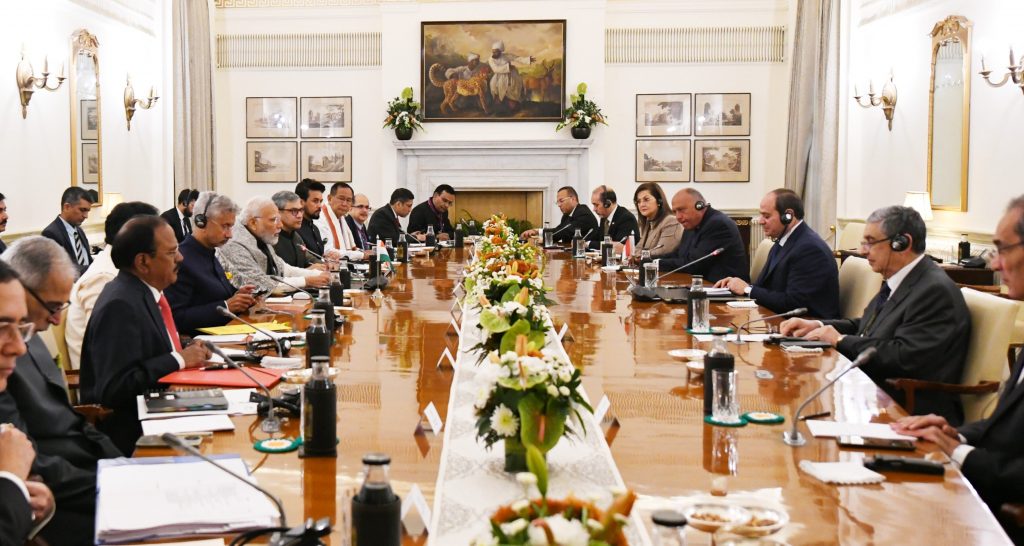
Ushering in a new era in their ties, India and Egypt, the North African powerhouse and a leading light of the Arab world, have elevated their relations to the level of strategic partnership and decided to intensify their defence and counter-terror cooperation.
India’s Prime Minister Narendra Modi and Egypt’s President Abdel Fattah El-Sisi held wide-ranging talks in the Indian capital on January 25 and unveiled next significant steps in their partnership pivoting around enhanced trade and investment, expanded defence relations and increased strategic coordination on regional and global issues.
India has rolled out the red carpet to welcome El-Sisi, the first Egyptian leader to be accorded the singular honour of being the chief guest at the Republic Day celebrations.
The key decisions taken during the summit-level talks included scaling up bilateral trade to $12 billion from 7.2 billion, transformation of defence ties and enhanced cooperation in renewable energy, including green hydrogen. The two sides signed pacts in diverse fields, including cyber security, information technology, culture, youth matters and broadcasting.
Announcing the decision to upgrade ties to the level of strategic partnership, PM Modi underlined that “strategic cooperation between the two countries will help in promoting peace and prosperity in the entire region.” President Sisi and I decided to elevate our bilateral partnership to the level of “Strategic Partnership, said PM Modi. “We have decided that under the India-Egypt Strategic Partnership, we will develop a long-term framework of greater cooperation in political, security, economic and scientific fields.”
Countering terror

Another major takeaway of the Modi-Sisi meeting was a joint resolve by both leaders to intensify counter-terror cooperation and counter-radicalisation, a move that will be watched warily by Pakistan. “India and Egypt are worried about the spread of terrorism happening around the world. We are unanimous in the opinion that terrorism is the most serious security threat to humanity,” said PM Modi. “Both countries also agree that concerted action is necessary to end cross-border terrorism. And for this, together we will continue to try to alert the international community,” said the Indian leader.
Egypt’s support for India’s concerns on cross-border terror is significant as signals Pakistan’s increasing isolation in the Arab world.
The discussions on terrorism were aimed at Pakistan, which pursues a policy of using terror as an instrument of state policy. Summarising the discussions, India’s Foreign Secretary Vinay Mohan Kwatara said: “Both leaders strongly condemned the use of terrorism by countries as a foreign policy instrument and called for zero tolerance to terrorism and for all those who encourage, support and finance terrorism, provide sanctuaries to terror groups, whatever their motivation may be.”
Defence Upgrade
Enhancing defence cooperation was an important takeaway and signals strategic upgrade of the partnership. The defence cooperation will revolve around platforms, equipment, and the related linkages of how industries of the two countries can come together on joint production.
The two sides also decided to work together to ensure and build supply chains related to food, fertilizer and energy, which have been threatened by the Russia-Ukraine war.
(Ashish Tiwari contributed inputs for this article)
Author Profile

- Manish Chand is Founder and Editor-in-Chief of India Writes Network (www.indiawrites.org) and India and World, a pioneering magazine focused on international affairs. He is CEO, Centre for Global India Insights, an India-based think tank focused on global affairs.
Latest entries
 India and the WorldFebruary 27, 2026Modi visit: India-Israel partnership enters a new era
India and the WorldFebruary 27, 2026Modi visit: India-Israel partnership enters a new era India and the WorldFebruary 24, 2026Unravelling Modi’s Israel journey: What to expect
India and the WorldFebruary 24, 2026Unravelling Modi’s Israel journey: What to expect India and the WorldFebruary 17, 2026South-by-South: Focus on people-centric solutions at India AI summit
India and the WorldFebruary 17, 2026South-by-South: Focus on people-centric solutions at India AI summit India and the WorldFebruary 7, 2026Modi hails interim India-US trade deal, Goyal says no concessions made on agriculture
India and the WorldFebruary 7, 2026Modi hails interim India-US trade deal, Goyal says no concessions made on agriculture







